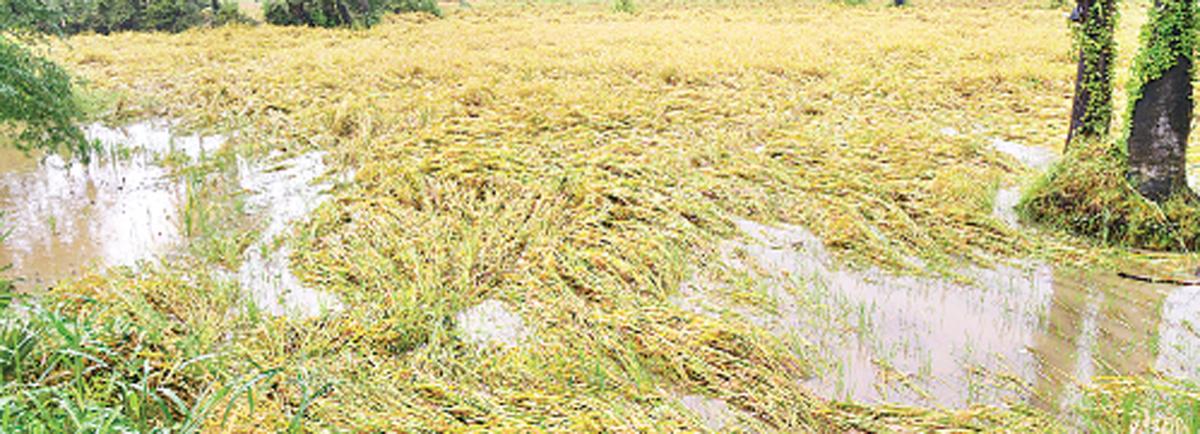Need to advance kharif stressed

The continuous cyclones between November end and December every year in Krishna delta have been throwing challenges to the State government and farming community
Vijayawada: The continuous cyclones between November end and December every year in Krishna delta have been throwing challenges to the State government and farming community.
The Krishna delta is known as rice bowl of Andhra Pradesh. But the frequent cyclones are creating havoc and crop loss to farmers. The State government constructed Pattiseema Lift Irrigation Scheme (PLIS) to encourage paddy cultivation and avoid cyclone threat but still the current cyclone situation raised debate on the precautionary measures.
Majority of farmers feel that the proposed Vaikunthapuram-Damuluru Barrage should be designed as multipurpose project for supply of drinking water for Amaravati capital city and also release water for irrigation purpose at the season beginning to nurture paddy seed beds. The water can be shifted to Pulichintala with reverse turbines as another alternative plan to store water for early Khariff needs.
According to officials, paddy is cultivated in nearly 14 lakh acres in Krishna delta under the purview of Krishna, Guntur, West Godavari and Prakasam districts. But the cyclones are creating hardships to farmers every year.
The cyclones are hitting the Krishna delta during November-end and the first fortnight of December. At that time, the paddy crop will be in the harvesting stage in the delta. As such, the farmers experienced crop loss for eight years during the last 10 years.
In this backdrop, the State government felt that the PLIS could solve the problem. Adequate water is available in Godavari river compared to Krishna river. Hence, the State government started lifting water to Krishna delta for the needs of irrigation purpose. But the Water Resources department could not release water early for khariff season during the last three years due to various reasons like no sufficient water in Godavari at the particular beginning of season.
Now the experts suggested to the government to make alternative plans to extend PLIS benefits wider with a few changes. If water is shifted to Pulichintala with the support of reverse turbines, it could be stored and released from June for seed beds in early khariff, said former drainage board member Erneni Nagendranath.
He said that he submitted a report to the State government in this regard. Once paddy cultivation starts in June, harvesting can also be completed by October avoiding the recurring cyclones, he explained.
Irrigation former official, D Madhusudana Rao said that the proposed barrage at Vaikuntapuram-Damuluru should be constructed as multipurpose project. He said that water could be stored for Amaravati capital needs and also irrigation purpose.








